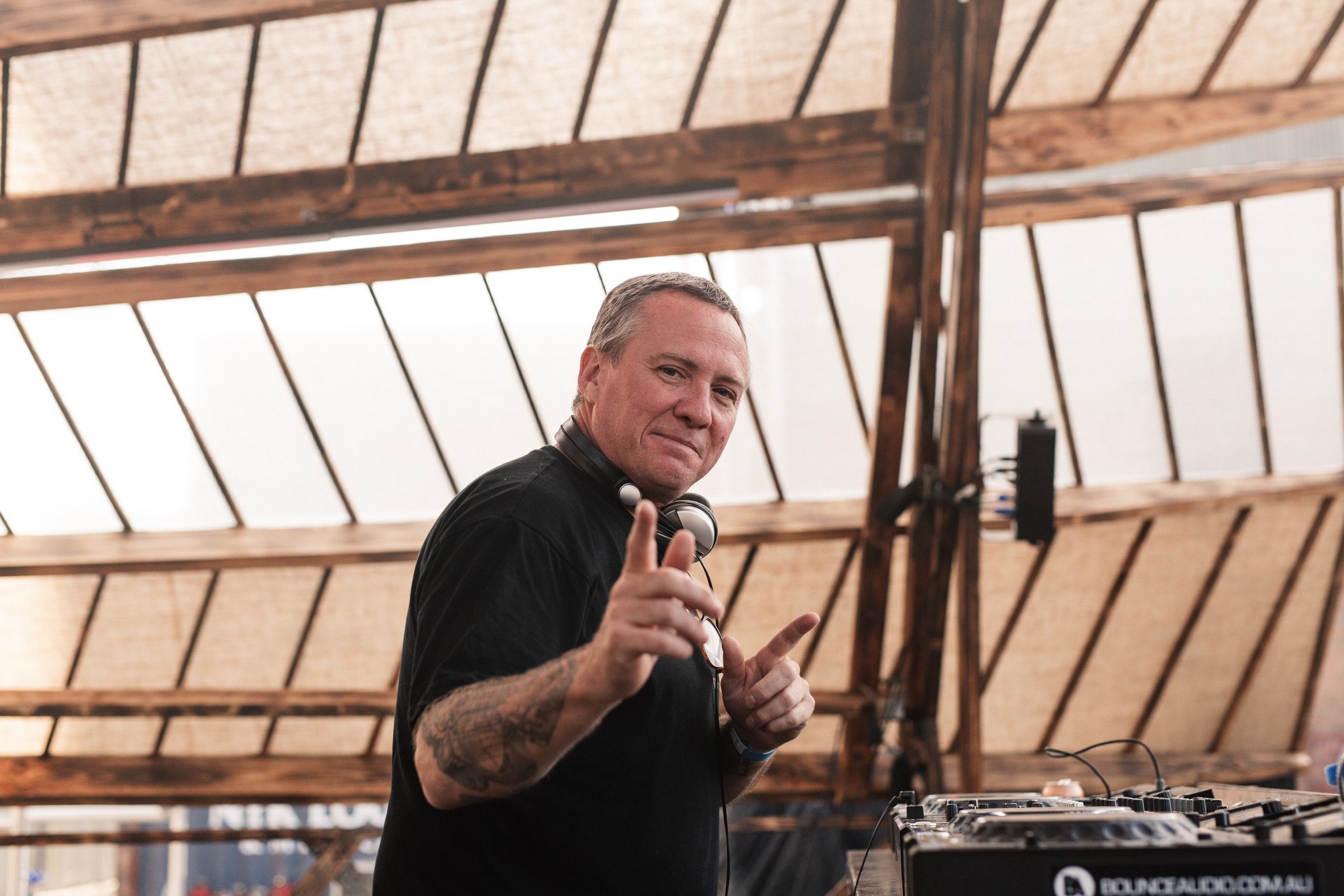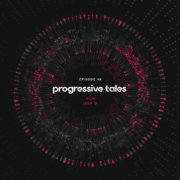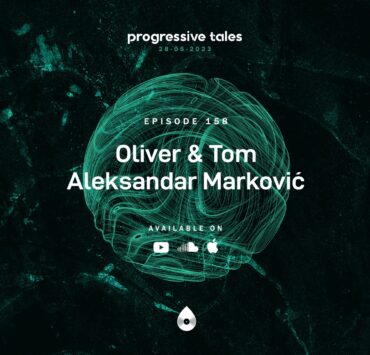One of the most loved and respected names in the Australian dance music industry, Kasey Taylor made his mark in his hometown of Melbourne before John Digweed scouted him in the mid-nineties on his first trip to Australia, where Kasey was playing the warm up set for him. It was that warm up where he gained Digweed’s instant respect and shortly after, he invited Kasey to play at his infamous Bedrock night in London. That was the catalyst for Taylor to take his sound to a global audience, leading to international exposure and a permanent move to Europe to satiate the demands of his worldwide bookings that followed.
Kasey is the creative power behind the highly revered Vapour Recordings, the 25-year old mainstay which was founded in 1997 and is over 160 releases deep and still going strong. More recently, Kasey has gone through a massive personal and creative resurgence. The recently rebranded Vapour Recordings is on a roll again with the label releasing regularly after a 2 year break due to the pandemic. The standard of the releases is and has always been what makes the label stand out from the rest, with names like Guy J, Hernan Cattaneo, Gai Barone, Stereo Underground, Jamie Stevens, Nick Warren, Dousk, James Monro, Mike Rish, GMJ, D-Nox & Beckers and many more high profile artists all appearing on the label. With an armoury of names like that, it’s easy to see why Vapour creates excitement with the scene’s biggest players. On a more recent production level, Kasey’s releases and remixes have appeared on labels such as Sudbeat, The Soundgarden, Bedrock as well as his very own label Vapour Recordings. Kasey has a ton of releases and remixes in the pipeline as well as some exciting collaborations with some of the worlds finest producers as he continues his drive to making quality productions to raise the hands of his beloved loyal followers on dance floors all over the world.
Behind the decks, Kasey is a fan favourite at all the clubs and festivals in his hometown of Australia as well as on a global scale too. He’s played and supported alongside all the industry greats you can think of and is one of the very few that can captivate an audience with his combination of versatility, patience and experience which allows him to move through a variety of genres from deep house to techno with his perfect attention to detail and immaculate programming. With his finger well and truly on the pulse, Kasey has an ear for a great tune and is always looking to the future, and that future is set for one of Australia’s most popular dance music artists and exports to continue his already well decorated career well into the future.
Hello Kasey, we are honored to have you here and to do this interview for our website with you.
You are one of the most important figures in the history of dance music, so let’s start this conversation from your beginnings. Tell us about your growing up and getting into electronic music, how did it all started out for you?
Hi there, thanks for having me for this interview.
So in regards to my growing up where do I start? I always loved music as a kid. I had a twin cassette player and used to listen to the radio and record my own tracks that I liked off the radio onto cassettes. They weren’t dance tracks but just your average 70’s tracks back in the day, as progressive wasn’t born yet, so I used to make up my own cassettes to listen too. I would listen to the radio and record all the songs and always try and hit pause at the right time to not get any of the adverts or the radio announcer talking on the cassette, so I guess in a weird way that was my intro into blending tracks together even though I wasn’t actually mixing on a mixer. I did this at such a young age before I even thought I was going to be a DJ, but I obviously had the creativity in me without knowing what the future would be.
I also used to be a professional roller skater as a kid. I went to a friends family owned roller skating rink at least twice a week. It was then that I used to look up at the DJ and think ‘how is he making one track go from one to the next?’, so I started to go up and stand next to him and watch how he mixed the records together. I watched so much that one day the DJ said to me ‘I need to go to the office and do a couple of things, do you think you could play this record and then that one after for me?’. I was like yeah no problem, so I did it and I must’ve done something right because after that, I started DJing at the roller rink every week from the age of 13. I did this for 4 years and then went straight into my first nightclub gig at the underage of 17. I had to lie about my age to get the job there as the minimum age was 18 but I managed to get a residency 5 nights a week and then, from then on, I started to play at all the nightclubs around Melbourne and by the age of 24 I started touring internationally.
The rest is history….
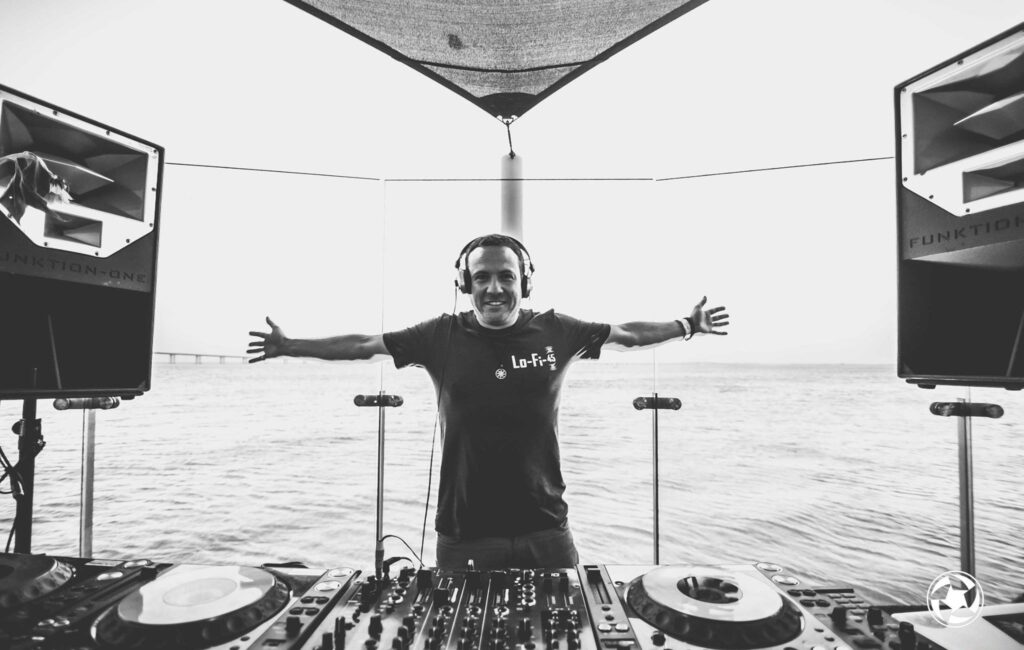
How would you contrast early raves to the festivals and parties that are happening today? I guess you were probably attending many of the early raves during the progressive house explosion.
In terms of the contrast between the two eras most of the early raves or parties back in the day were in the acid house and early rave era, and most of the parties back in those times were illegal underground raves. They had an edge to them. Everything was fresh and I was one of the lucky ones to be there right from the start to help introduce this sound to all the early ravers in Melbourne.
Parties that are happening today are huge, the scene is huge, the budgets are big and there are so many DJs now compared to 35 years ago, as everything is easily accessible now. Everyone can make music on their laptops where as back in the day we would have to go into an actual recording studio and do the final touches there. It’s not even really underground anymore as it’s so easily accessible because of the internet. You really can’t compare then and now as it’s just so different…
Progressive house wasn’t really a thing until the release of a record by Gat Decor called ‘Passion’. That was the catalyst for the progressive house genre as it was a record that was a dub without a full vocal in it. I was so used to playing tunes with vocals like every other DJ back then, as that’s all there was, back in the day that when this record got released, it was totally different sounding and it revolutionised the scene and was definitely the track that basically started it all.
What do you think of Australia’s scene now and how has it changed over the years?
Australia’s scene is currently on fire at the moment right across the board. The festival scene is massive here and we have many one day events happening as well, so we are spoilt for choice. I guess back in the days, pre social media, getting noticed in Australia was always the super hard thing due to being miles away from anywhere, so we always felt a little disconnected down here from the rest of the world.
We’ve always had talented people here in Australia but because of being so far away it was hard to get noticed but now we have a lot more people at the peak of their powers, along with some other people making a resurgence and there’s a lot of focus on what we are doing down here.
Before the internet and social media, it was always hard to get your tracks heard overseas or played or signed to labels because of the distance and because it was easier to sign records from people in Europe to labels in Europe, rather than Australia, but DJs and labels from the rest of the world now look at Australia for inspiration, and want to sign our music where as before we were chasing overseas DJs and labels more to get noticed. I feel there is more focus on what’s going on out here now so it’s great in terms of being able to get things on overseas established labels more as it’s easier to connect with everyone. The talent here now is as good as the rest of the world and stands up to the rest of the world, and it’s super rewarding for all the Australian artists that are finally getting the recognition they deserve.
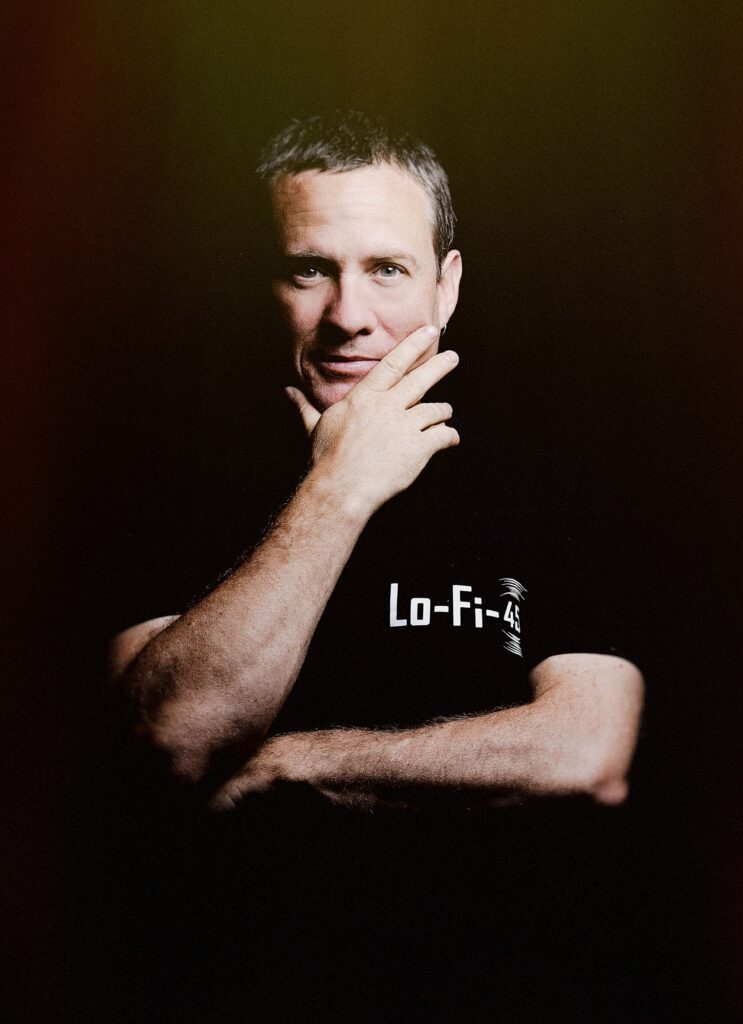
How has it been for you on the road from a new artist at 20, to being a recognized name in the industry?
The ride has been amazing. It’s hard at the start getting on the road as we are geographically challenged and not in the best spot to just fly to another country on a weekend and then head back home as easy as it is like in Europe, so it’s kind of tough for Australians in that aspect. When I started touring, I had to try and throw together a months worth of gigs at a time to make it viable once someone was interested in booking me overseas. It ended up getting to the point where I was doing that 3 times a year so I decided to finally move over to Europe. I spent a couple of years bouncing around Europe from the UK and then decided to live in Portugal, after playing a couple of gigs there and finding the place amazing. Portugal was fantastic and a great base to have over there as it was easy to fly around Europe and the rest of the world. Also not having to do a 24 hour flight was a blessing that’s for sure, so once I moved over there the gigs started flowing and it was much easier.
I did this every weekend for basically 10 years and then came home but I’m ready for another stint back in Europe. I’m looking at opportunities at the moment to get back over there as soon as possible as I have gigs scattered all over Europe this year, so it’s looking like a few separate trips over there again. It’s getting back to the point where I need to be living back there again full time.
What was the main motivation for you at that time?
I just loved the music. It’s always been about the music so the motivation is easy and as I mentioned in the previous question, I guess being closer to everything by being in Europe was a massive motivation to further my career back then, and it still is now…
It’s quite clear that we are living in unprecedented times. In your long career, what were the most challenging or difficult moments and how did you deal with them?
Jet lag is a huge one! Traveling from one place to another every weekend and crossing so many time zones, you really need to be on top of your game to maximize your performance. I always tried to stay on the time zone of where I was flying too, so that it didn’t wipe me out so much when I landed in the country of where I was playing that weekend. I wasn’t always successful at it but I tried! It still gets you no matter what but you just got to make the best of it. Also, sometimes spending more time in the air than being on the ground can really throw you about. I think I got to a point where if I wasn’t feeling jet lagged I wasn’t feeling normal! It’s so weird.
The other thing was obviously the pandemic. It shut down the music industry for the best part of two years, and it’s still recovering economically but we are getting there now, and things are more back to normal slowly.
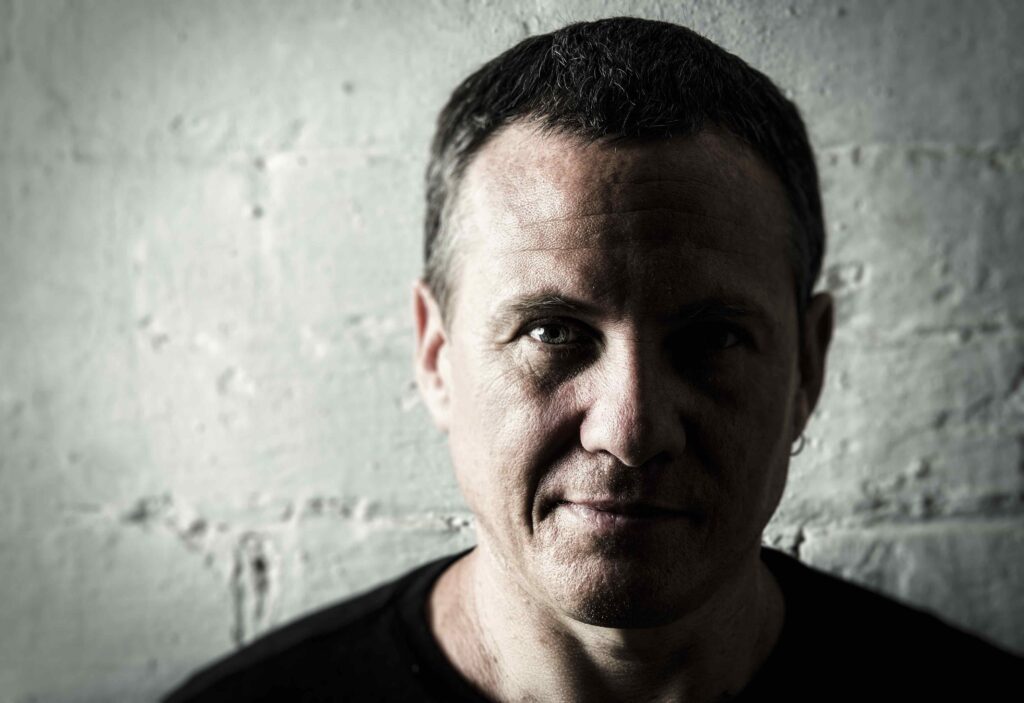
What’s your opinion regarding the difference between old school DJing where everything was restricted to vinyl and modern DJing where most tracks are never put on any physical media before or after release? How do you feel about the transition from vinyl to digital?
Well I was definitely lucky enough to be there from almost the very start when it was just nothing other than vinyl and turntables and no internet or social media, so the scene was super underground as the music was not easily accessible back then. You had to make the effort to go into record shops weekly and find all the gems. I used to get heaps of white labels and test pressings which were basically the test versions before they went to print. The excitement of getting these knowing that basically you were 1 of 10 or 20 people in the world to receive one still gets me excited today thinking about it. It never wears off.
The other thing is, that when I started making music, I was making it on an Atari using Notator which was the program most were using before Macs came out and around the same time Logic was invented. Once you finished a track, you would have to go into a big studio and mix them down properly as this was pre software days and we never had the tools to be able to mix properly. I used to go into studio and mix my tracks down on 96 channel SSL desks and big rigs like that. I miss those days but I also love how easy I can do it at home too.
Since the digital evolution changed all that, you can now make music straight out of the box on your home computer and have it sound as good as anything that came out of a professional studio pretty much. As much as this is a positive, the negative to this is that most of the tracks written these days wouldn’t stand half a chance of being on vinyl, as they would not sell because there is a lot of average tracks out there now and the scene is completely saturated with average music. I used to walk into a record shop, go through 20 records for the week, buy at least 15. I could now go through Beatport for hours and hours on end, go through 1000/1500 tracks and buy the same amount – 15 tracks.
Everything has just evolved. Some of it for the better, some of it not but you just got to move with the times.
Mental health is always a huge talking point. Do you think the music industry offers artists enough support?
That’s a very good question. I mean the music industry doesn’t have a governing body as such for us to turn too when things are feeling a bit down, so it’s difficult. I think living in the social media days now those platforms can be a huge thing when it comes to mental health decline. Social media is a necessary evil but I think if we get too caught up in it, it can become destructive. I try to limit my time on it and use it for positive things and not get caught up in debates and negative things, as that can affect your mental health over a period of time, but saying that using social media is also a good platform to promote mental health awareness as we are always on it, so that’s what I mean right there. It’s a balancing act.
I’m all about supporting mental health in the music industry and I’m all about social media, if it’s used in the right way, but as a whole we don’t really have it easily available as a music community in terms of mental health support. That is something I feel could definitely be looked at to generate more awareness and help those that sometimes struggle. At the end of the day, we’ve all had our ups and downs but you just have to brush the negatives off and try and turn them into positives but sometimes that’s easier said than done.
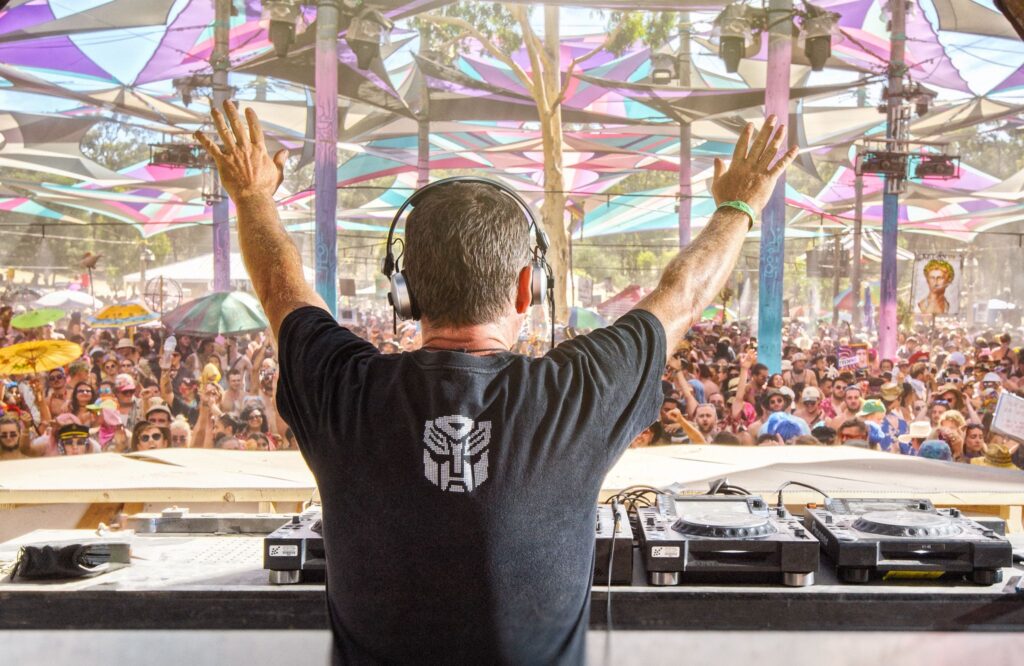
You launched Vapour Recordings in 1997. What can you tell us about the idea behind it? Have you achieved goals that you’ve set when creating it?
I was making music for a label here in Australia and I started to make some stuff on the side on my own, which was a bit more edgy. The label that I was signed too at the time wasn’t interested in releasing them as they were too different for the label and not mainstream enough, so it was that moment that I decided I believed they were good enough to be released and it was then that I thought I’ll start my own label and that’s when Vapour Recordings was born.
Here we are 25 years later and nearly 170 releases down the track. In terms of my goals, all I wanted was my music to be heard, appreciated and supported which it has been so I’m super grateful for that.
How much of your personality do you put into your music? And how do you get personality and emotion into your music?
Music is an expression of someone’s personality so put everything into it and it just comes out organically for me. I don’t have a formula when writing music. I definitely have a vibe and a sound but I don’t stick to structures and I don’t like two tracks to sound more or less exactly the same, so I try to do lots of different things. Personality and emotionally wise, I throw everything in there. I never go into the studio with an idea of ‘I’m gonna make a track that sounds like this today or sounds like the previous track that I wrote before.’ I just kinda go in, throw a few things around and try and get my main melodies from the start and then build around it. I don’t like music without soul and emotion in it. It can be techno, melodic house, progressive house or any genre but music needs those two key elements for me to want to play it.
Can you describe your state of mind during a DJ set? What supports this ideal state of mind and what are distractions?
My state of mind during a set is always relaxed. I’ve been doing this so long now that I’m pretty calm and measured during a set and don’t really get distracted. I guess experience helps from doing this for so long. Saying that though I can get quite electric behind the decks once I’m on the groove and feel like I have the crowd in the palm of my hands.
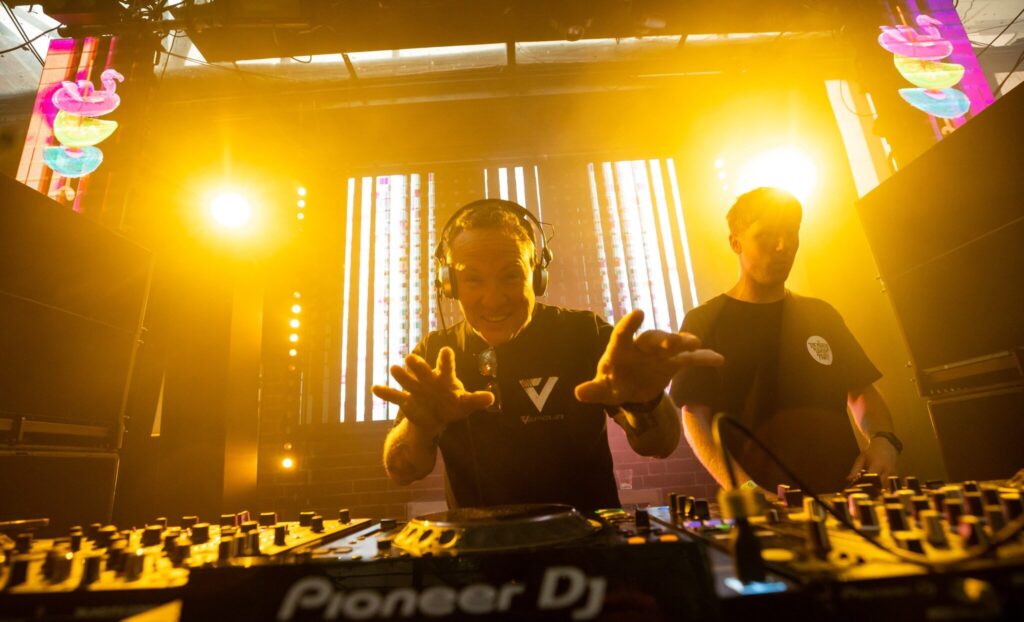
What young DJs and producers have grabbed your attention?
There are so many DJs and producers out there now that’s it’s hard to keep up so I will use this chance to throw in some support for my fellow Aussies even though they aren’t young.
Mike Rish is someone who is developing very well. He’s been making music for a long time and he’s finally getting the attention he deserves. Wilma is another one out here. She’s a wizard. DJs and plays the cello over the top of things. It’s different to just a normal DJ set but she’s taking off. Definitely a name to watch out for. I just need to get her in the studio now but that’s coming soon.
Lastly, my partner Karl Pilbrow. We’ve made quite a few tunes together now for Sudbeat and Vapour and I’ve nurtured him from the start and now he’s going to be having his own EP coming out soon as well as our collaborations. I’m all for helping the growth for people I believe are talented enough to make it to the big league and these 3 are definitely ones to watch out for.
Who is Kasey Taylor when he is not behind the DJ deck or in the studio? Is there any interesting hobby that you enjoy in your free time?
As I’m normally so busy it’s hard but I like to try and keep some balance so I spend time with my partner, friends, do dinners (I love to cook). I also love to go camping with friends when it’s not freezing. Being out in nature is important to me. I guess that’s why I love outdoor festivals more and more now and love playing at them more, plus my music suits the outdoor vibes. I also love to play Tennis and other sports to try and keep myself active as well. At the end of the day, it’s all about balance.
For the end of this conversation, are there any exclusive information you can share with us or maybe announce some of your upcoming projects?
I have heaps of things going on this year. I have an EP coming out on The Soundgarden with Funkform in July. Karl Pilbrow and myself also have 4 tracks coming out on Sudbeat this year. One on the Showcrates compilation in June and one 3 track EP in December, plus we have a couple of EP’s with Vapour this year too. I’ve also done a collaboration with Jamie Stevens and I’m about to do one with Gai Barone so it’s a busy year indeed for me.
I’ll also be heading off to Europe to play at Ozora Festival in July and then I’ll be doing a more extensive tour at the end of the year around Europe so stay tuned for those dates coming soon.
We wish you all the best on your upcoming projects and once again, thank you very much for taking the time for this conversation.
Thanks very much for asking me to do this interview.

